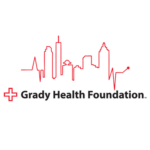 The Grady Health Foundation works with philanthropists, corporate leaders and civic activists to raise critical dollars and secure in-kind donations to benefit the Grady Health System. The Grady Health Foundation is a 501(c) 3 that directly supports metro-Atlanta and Georgia’s largest safety net hospital – Grady Memorial Hospital.
The Grady Health Foundation works with philanthropists, corporate leaders and civic activists to raise critical dollars and secure in-kind donations to benefit the Grady Health System. The Grady Health Foundation is a 501(c) 3 that directly supports metro-Atlanta and Georgia’s largest safety net hospital – Grady Memorial Hospital.
In an effort to increase public awareness about Grady’s unique role in the health of the city and state, the Foundation hired Arc 3 Communications to remodel its traditional marketing program into a content marketing program that utilized its website, social media, email marketing and digital advertising programs in a way that created a donor content journey that resulted in more subscribers, donors and advocates for Grady. Grady’s leadership sought to transform an essential Atlanta institution into the leading public academic health center in the U.S., and have patients and their families rave about their experience at Grady regarding the quality of care they received.
Working with the Grady Health Foundation staff and the Grady Health System public affairs team, a content audit was made of all content online; and a strategy session was conducted to identify audiences of current and potential donors, stakeholders and advocates. Audience personas were created and a content marketing program was developed that included the messages and content strategies that resonated with different donor audiences via the Foundation website, social media, email marketing and digital advertising via Facebook and Google. Content strategies included having a good balance of content in a variety of specialty areas that pertained to the capital campaigns underway, and having content with both broad donor appeal and geared towards more elite audiences such as major gifts and foundational grants. Seasonal trends – such as end of year giving – were also considered and out of the park content was planned each quarter and repurposed. Reused content such as photos and stories from the remarkable history of a 120 year old Atlanta institution was also incorporated into social media strategies. Video content for the Foundation’s annual White Coat Grady Gala honoring Grady’s top physicians and their lifesaving work was also created and repurposed throughout the year leveraging healthcare observances in specialty areas. Analytics and testing tools were utilized to analyze content before and after publishing on the website, social media, email marketing and digital ad platforms. Headlines, images and text were tested and reworked for improvement. As content was readied for distribution, channels were carefully selected and optimal times for publishing on them were chosen. Data and traffic were looked at every day for success or failure and improvement.
Today, Grady Health Foundation’s website is one of the most visited online health care foundation destinations. Its social media following is also impressive, with more than 8k Facebook fans and 5k Twitter followers. The Grady Health Foundation has seen a dramatic increase in donations made over its website and seen an increase in major gifts to its capital campaigns and grants from national foundations from across the country. Within the last year, Grady raised a record $1.8 million at the annual White Coat Grady Gala and saw the official dedication of the Marcus Trauma and Emergency Center at Grady, funded through a contribution made by philanthropist Bernie Marcus and the Marcus Foundation.
